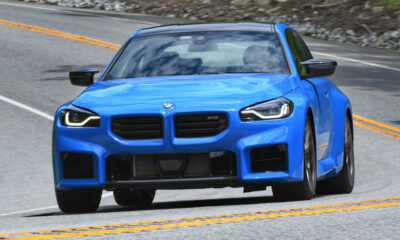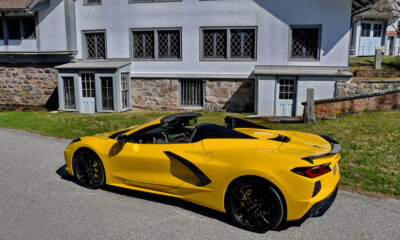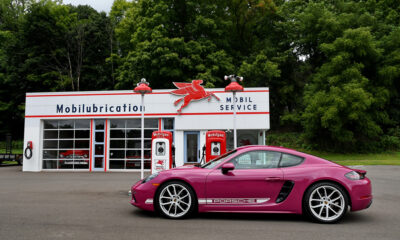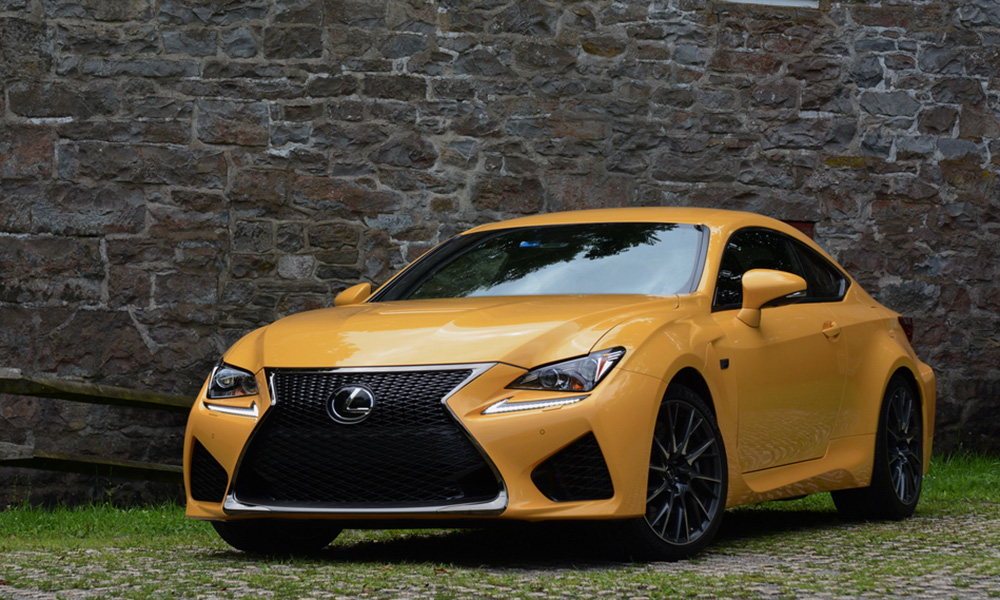
Photo: David Haueter
The Lexus RC F is a bit of an anomaly in the world of performance sport coupes, a throwback to an era (which wasn’t that long ago) before turbochargers and smaller displacement engines became the norm.
Granted, it has been around for a few years now, but the RC F has a high-revving normally aspirated 5-liter V8 under its hood, which makes it unique versus most of its competitors.
The appearance of the RC F is also distinctive, with the Lexus trademark grill up front and stacked exhaust pipes at the rear, along with vents and body contours that add to its sporting aura.
A rear spoiler pops up when the car hits 50mph to reduce rear lift. Inside, the RC F has carbon fiber and alcantara trim along with supportive sport seats and a grippy steering wheel with paddle shifters, along with driving modes for Eco, Comfort, Sport and Sport+.
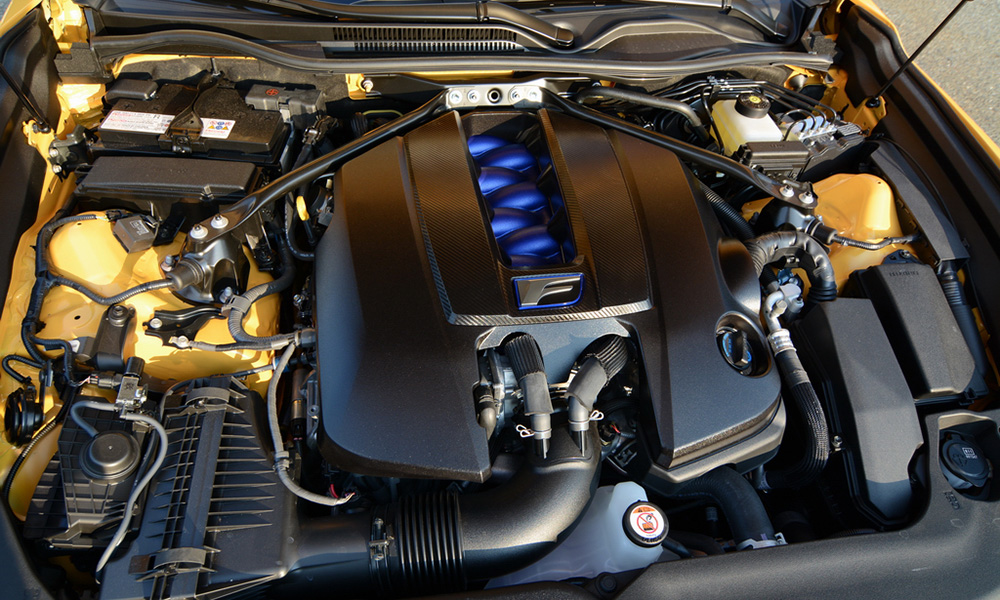
Photo: David Haueter
Some elements of the RC F cockpit feel dated. The finger-controlled pad for the infotainment display is touchy and awkward to use, and the infotainment display itself is set far back into the dash with a largish shelf in front of it that ends up being a catch all for sunglasses or smartphones, as well as dust.
Lexus gives a lot of information to the driver in a display next to the tach, with everything from fuel range to G-force and tire pressures. There’s even a lap timer. The back seat is tight but usable for short distances, and the trunk is surprisingly roomy for a sports coupe.
The spec sheet gives up some good numbers, with the V8 putting out 476hp and 389 lb-ft. of torque that can move the RC F from 0-60mph in 4.4 seconds on the way to a 168mph top speed.
There are big Brembo brakes on all four corners behind 19” BBS forged alloy wheels that wear Michelin Pilot Super Sport tires, and the suspension features independent double-wishbones at the front and an independent multilink setup at the rear.
The car also has a Torsen limited slip differential with a torque vectoring diff also on the options list.
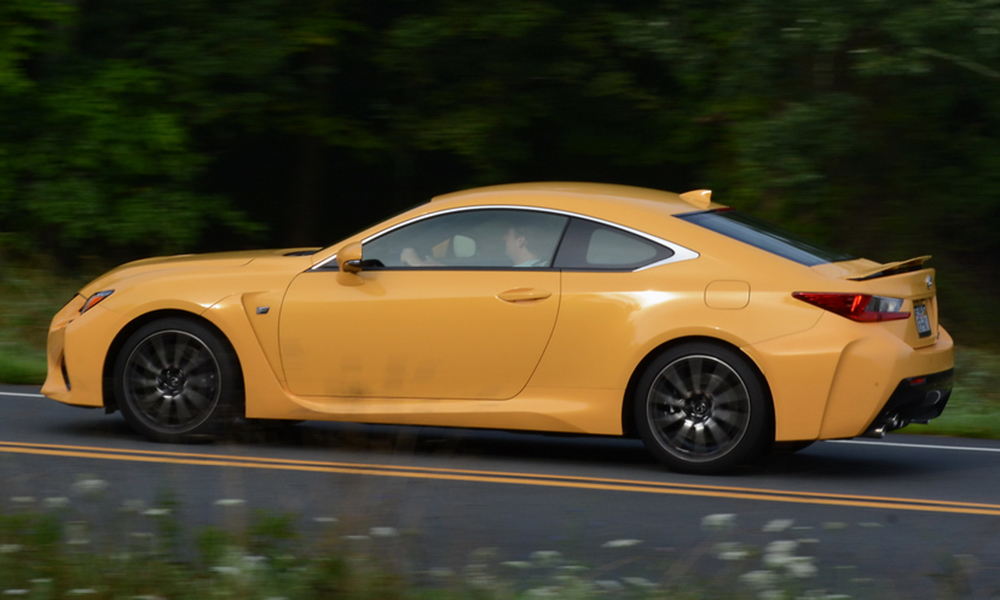
Photo: David Haueter
The RC F has all the performance numbers and specs that you typically find in a sports coupe, but when it comes to driving it becomes evident that Lexus was just as much or more concerned with comfort than performance when they designed this car.
The RC F is comfortable and quiet (for a sports coupe) on the highway in Comfort mode, with a compliant suspension that gives a smooth ride and it delivered around 25mpg in highway driving, which is pretty good for a car with a normally aspirated V8.
On twisty roads, however, the RC F feels a bit out of its element. The 8-speed automatic (the only transmission available) doesn’t have the shift speed or crispness of other dual-clutch or automatic transmissions used by its rivals, and its hefty 3,958 lb. weight (273 lbs. more than a BMW M4) gives the car too much body roll and understeer when driven hard, even when driven in Sport or Sport+ mode.
Put simply, the RC F is not a car that you’d really want to take to a track day, though it is entertaining to drive on twisty back roads as long as you don’t push it too much.
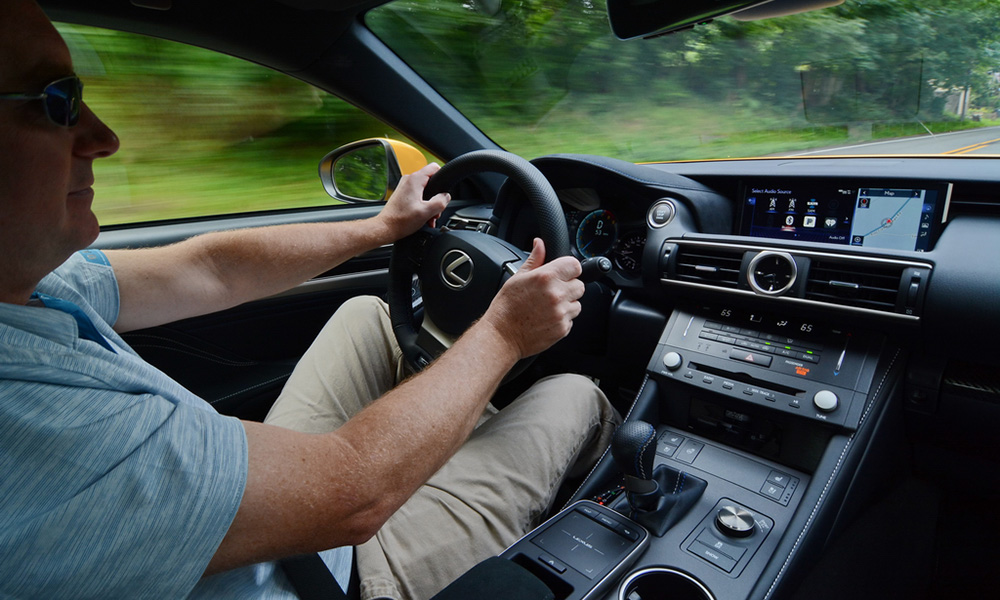
Photo: David Haueter
Another annoyance is when the exhaust flaps open up at around 4,000rpm to give a much louder exhaust note. It’s like an on-off switch and seems gimmicky and unnatural.
Ultimately, the RC F is a good choice for drivers who want a comfortable daily driver that’s sportier in appearance and more fun in casual driving than a Lexus sedan.
It seems as if Lexus designed it more for traditional Lexus sedan buyers who want something a little more sporting, rather than to be a serious competitor to German rivals.
Given Toyota/Lexus’ racing pedigree, including participation in the WeatherTech SportsCar Championship GT Daytona class with a pair of RC F GT3s, we know they have the capability to make a more driver-focused sports coupe, which is on the product roadmap for 2020.
The 2020 RC F Track Edition will have more power, bigger brakes and presumably better handling, with more aero and stickier tires.
More importantly, it will carry less weight than the current car, with carbon fiber body panels. The new Toyota Supra is coming in 2019 as well, which also promises to cater to those who crave track-day performance in a road car.
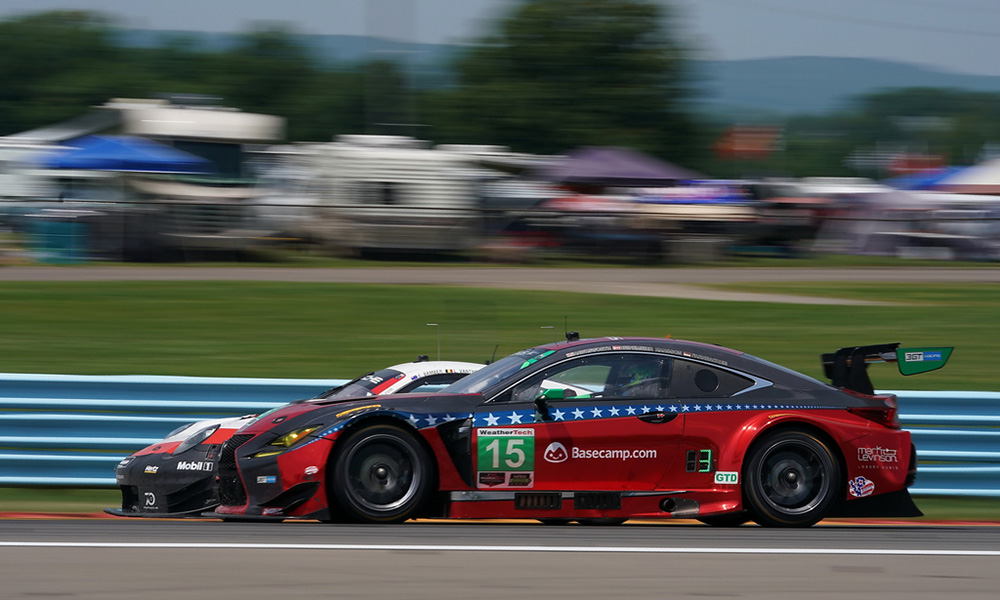
Photo: David Haueter




















